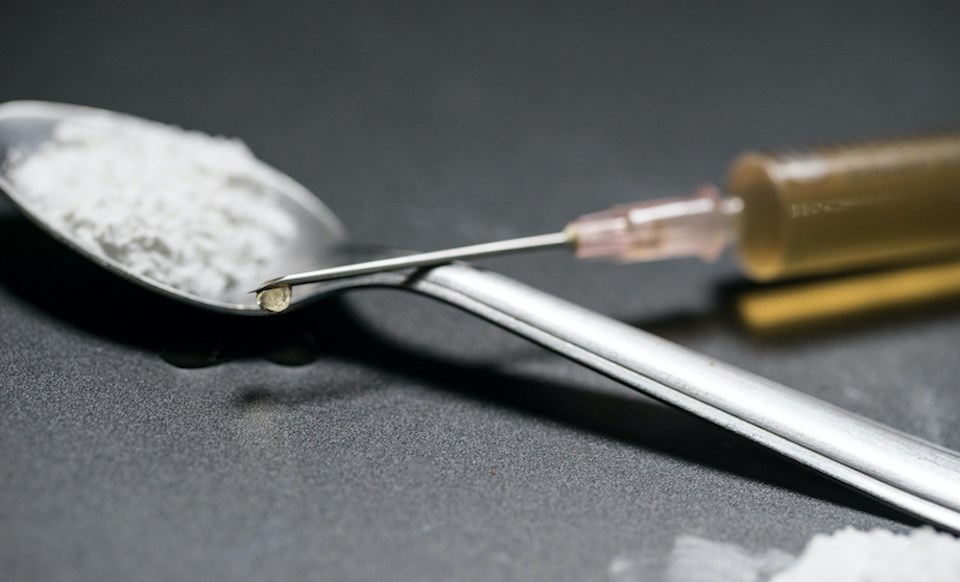A grassroots organization continues to sell illegal drugs in Vancouver and the police seem to be looking the other way -- and that isn't because they have been keeping their dealings a secret.
Drug User Liberation Front (DULF) co-founder Jeremy Kalicum says that the Â鶹´«Ã½Ó³»Police Department (VPD) doesn't view the members of his nonprofit organization as criminals, despite the fact that they are breaking the law.
"I can feel it when I'm talking to people," the advocate tells V.I.A., pointing to a change in the general attitude of elected officials, government employees, and law enforcement. "Everybody is on board and sees the value," he adds, noting the main issue is navigating public perception.
While many people consider substance abuse a health issue, removing the barriers for people to access a "safe supply" of drugs is far more complicated, he explains.
And while the B.C. government announced in May 2022 that it will remove criminal penalties for people who possess 2.5 grams or less of certain illegal drugs for personal use, Kalicum and DULF's other co-founder, Eris Nyx, point out that the new rules aren't preventing deaths.
Â鶹´«Ã½Ó³»deaths increase following B.C. exemption
The three-year exemption under the Controlled Drugs and Substances Act (CDSA) came into effect in January. However, in the first seven months of the year, a staggering 1,455 deaths in the province were attributed to toxic drugs, which is the largest number on record, according to preliminary data released by the BC Coroners Service.
As of July, over 190 British Columbians have died due to an "unregulated drug supply" for the 13th consecutive month.
In response, DULF , including cocaine, heroin, and methamphetamine, to coincide with the release of the coroner's monthly death toll, calling on the government to allow them an exemption to provide drug users with a "safe" alternative via compassion clubs. The substances handed out are tested via Mass-Spectrometry, Nuclear Magnetic Resonance spectrometry, and High-Performance Liquid Chromatography, ensuring that they are free from harmful cuts, buffs, and adulterants.
In August 2022, the non-profit began operating a compassion club and launched a study of its members, conducting interviews every three months. People who use street drugs purchase them at about 50 to 80 per cent less than what they would pay for them on the street. Plus, they also "know" what they are getting.
DULF says the substances are "clearly labelled" to ensure program participants know the "contents, potency and quality of their drugs."
At the one-year mark, the group found "substantial decreases in overdose, prevalence of police interactions, hospitalizations, and reductions violence related to drugs" as well as what they claim "prevents over $100,000 of profit from supporting organized crime," according to DULF's just-released report.
When asked how they arrived at that sky-high figure, Kalicum explains that they purchased the drugs "in bulk" off of the dark web "at cost." The average drug user purchases substances off the street at a "marked up" price, not unlike how a boutique would sell a product versus a wholesale company like Costco. They also based the on a study conducted by the University of Victoria.
No deaths from the DULF drugs
Ideally, compassion clubs would be supplied by pharmaceutical companies, cutting off all gang involvement, he noted, stressing that the group doesn't have many options at this point.
Most importantly, however, Kalcium says there were no deaths related to drugs provided by the compassion club.
“With this pilot program, we wanted to demonstrate what people who use drugs have known since this crisis began. That access to a regulated, non-exploitative, and consistent supply of drugs saves lives, reduces crime, and improves the health of people who use drugs," Kalicum underscores.
"It is with profound frustration and unimaginable grief, that we ask for the government to act now and regulate the illicit market before more lives are lost."
The VPD supports a variety of harm reduction strategies and believes they can save lives lost to drug toxicity "if used in conjunction with treatment, education, and appropriate enforcement," Sgt. Steve Addison tells V.I.A.
But police must also enforce the law and anyone who "violates the Criminal Code or the Controlled Drugs and Substances Act could face charges," he adds.
Unregulated drug toxicity is the leading cause of death in B.C. for persons aged 10 to 59, accounting for more deaths than homicides, suicides, accidents, and natural diseases combined.
The lives of at least 12,739 British Columbians have been lost to unregulated drugs since a public health emergency was first declared in April 2016.



